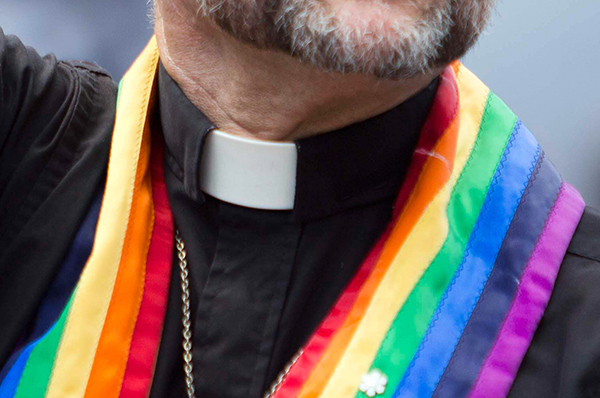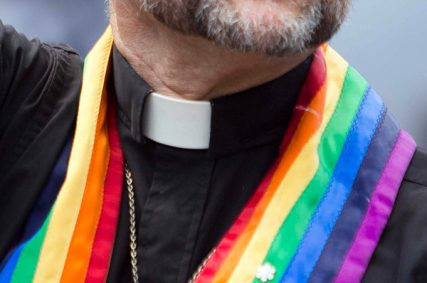OKLAHOMA CITY (Reuters) Oklahoma’s conservative lawmakers, angered at being ordered by U.S. courts to allow gay marriage in the state, have come up with a new, religious tactic to block same-sex weddings by mandating that clergy conduct almost all ceremonies.
But in a twist, their efforts to restrict who can perform marriages could make it easier for gay couples to wed, and have led to what one activist calls “marriage chaos.”
A bill overwhelmingly approved this month in the state’s Republican-controlled House of Representatives would allow only judges, retired judges and members of the clergy to issue marriage licenses, cutting county clerks out of the business.
Yet as the measure was making its way to the floor, a rush of same-sex marriage supporters applied to become ministers with the intention of registering as clergy authorized to perform weddings in the state.
“I registered so I could marry same-sex couples. I have the confirmation email. The Oklahoma County Courthouse site is very vague about the paperwork necessary to register,” said Rose Marie of Oklahoma City, who applied for her minister license online in February after the measure was first introduced.
As the tide has turned in favor of gay marriage in the United States, several socially conservative states have proposed legislation aimed at making it difficult for same-sex couples to marry. The Supreme Court is to take up the issue of whether states can ban gay marriage, which is now allowed in at least 36 states.
Republican Representative Todd Russ, the author of the bill, has said he wants to take the state out of marriage and has pledged to “stand for godly values and godly leadership in government.”
“Oklahoma’s at the point where we have decided we are drawing a line today and sidestepping the government’s overreach,” Russ said. The Oklahoma Senate is due to consider the bill later this year.
Atheists and agnostics in Oklahoma are not pleased at the prospect of almost all marriages being placed in the hands of clergy.
Freedom Oklahoma, which supports the lesbian, gay, bisexual and transsexual (LGBT) community, said lawmakers have not come to grips with the consequences. It calls the measure confusing and a violation of the separation of church and state.
“The way this law is written makes it anti-marriage. It’s equally harmful and hurts everyone,” said Troy Stevenson, executive director of Freedom Oklahoma.
“Theoretically, this bill gives legal status to same-sex marriage, but the bill is so bipolar. If you are a nonbeliever … it could take months to find someone who could perform your marriage.
“We call it the ‘marriage chaos’ bill,” Stevenson said.
Stevenson said some clergy also are not happy about taking on responsibilities that once were managed by county clerks. The measure calls for marriage to be performed or solemnized by a judge, retired judge, preacher, minister, rabbi, or ecclesiastical dignitary.
“They (clergy) work for Jesus, not Oklahoma,” Stevenson said.
Legal experts said if the state tries to set regulations on what religions’ clergy it sees as legitimate, Oklahoma could run afoul of U.S. constitutional requirements that forbid the government from establishing religion.
Eric Thompson, an Oklahoma real estate agent who supports same-sex marriage, feels the bill is overly intrusive and became an ordained minister because of it.
“If this bill passes, I would put it out there to everyone that I could perform same-sex ceremonies,” Thompson said.
(By Heide Brandes; Writing by Jon Herskovitz; Editing by Jill Serjeant and Jonathan Oatis)






